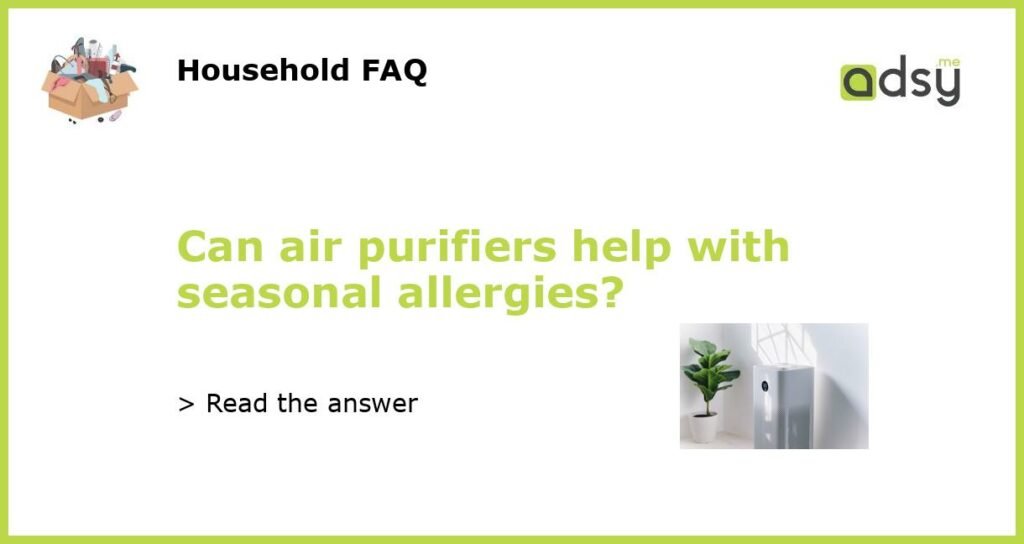Understanding seasonal allergies
Seasonal allergies, also known as hay fever, is a common condition that affects millions of people worldwide. This allergic reaction is usually caused by exposure to pollen from trees, grasses, and weeds during specific times of the year, typically spring and fall.
How air purifiers work
Air purifiers are devices designed to remove pollutants, including allergens, from the air. There are various types of air purifiers on the market, including HEPA filters, activated carbon filters, and ionizers. These devices work by trapping or removing particles from the air, such as dust, pollen, pet dander, and mold spores, among others.
Can air purifiers help with seasonal allergies?
The short answer is yes. Air purifiers can be an effective tool in reducing the number of allergens in the air, which can help alleviate symptoms of seasonal allergies. However, it is important to note that air purifiers are not a cure for allergies and should be used as part of a broader strategy to manage allergies, such as medication and avoiding triggers.
How to choose an air purifier for seasonal allergies
When choosing an air purifier for seasonal allergies, it is essential to look for a device with a HEPA filter that can capture pollen and other allergens effectively. Additionally, consider the size of the room or space where the air purifier will be used, as some devices are designed for larger areas than others. It is also important to consider the noise level of the air purifier, particularly if it will be used in a bedroom or other quiet space.
Other ways to manage seasonal allergies
While air purifiers can help reduce the number of allergens in the air, there are other ways to manage seasonal allergies. For instance, taking medication, such as antihistamines or nasal corticosteroids, can help alleviate symptoms like sneezing, runny nose, and itchy eyes. Additionally, avoiding pollen by staying indoors during peak seasons or wearing a mask while outside can help reduce exposure. Cleaning and vacuuming regularly can also help reduce the number of allergens in the home.






